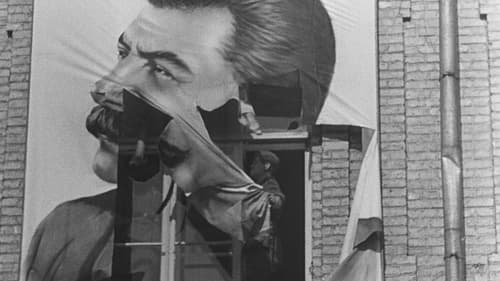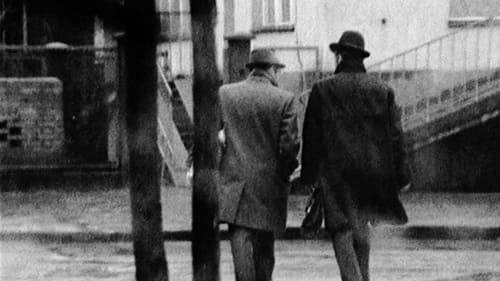Tomasz Wolski
Nacimiento : 1977-11-25, Gdynia, Pomorskie, Poland

Screenplay
Bombed-out streets, destroyed Russian tanks, evening meals in an Underground repurposed into a shelter. Image by image, the directors push beyond easily reproducible images of war to enter the reality the country has experienced since February 24, 2022.

Sound
Bombed-out streets, destroyed Russian tanks, evening meals in an Underground repurposed into a shelter. Image by image, the directors push beyond easily reproducible images of war to enter the reality the country has experienced since February 24, 2022.

Editor
Bombed-out streets, destroyed Russian tanks, evening meals in an Underground repurposed into a shelter. Image by image, the directors push beyond easily reproducible images of war to enter the reality the country has experienced since February 24, 2022.

Director
Bombed-out streets, destroyed Russian tanks, evening meals in an Underground repurposed into a shelter. Image by image, the directors push beyond easily reproducible images of war to enter the reality the country has experienced since February 24, 2022.

Editor
Entre el 29 y el 30 de septiembre de 1941, el Sonderkommando 4a del Einsatzgruppe C, con la ayuda de dos batallones del Regimiento de la Policía del Sur y de la Policía Auxiliar Ucraniana, y sin que la población local opusiera ningún tipo de resistencia, fusiló a 33.771 judíos en el barranco de Babi Yar, al noroeste de Kiev. La película reconstruye el contexto histórico de esta tragedia con imágenes de archivo que documentan la ocupación alemana de Ucrania y la década posterior.

Editor
The Kiev Trial, also known as the ‘Kiev Nuremberg’, took place in January of 1946 in the Soviet Union, and was one of the first post-war trials convicting German Nazis and their collaborators. 15 criminals, guilty of atrocities, which were later identified by the Nuremberg trials as “crimes against humanity”, faced justice in case No.1679 “On the atrocities committed by fascist invaders on the territory of the Ukrainian SSR.” Using unique, previously unseen, archive footage, Sergei Loznitsa reconstructs key moments of the proceedings, including statements of the defendants and testimonies of the witnesses, survivors of Auschwitz and Babi Yar among them. The film lays bare the ‘banality of evil’ and is devastatingly relevant today, as Ukrainian people are once again being subjected to the violence of barbarian invaders.

Editor
An unusual couple, Leszek and Mikolaj, move into a stud farm that one of them inherited form his father. When Mikolaj discovers that someone has destroyed their wooden fence, he becomes obsessed with fixing it. Yet, can the fence really protect this relationship from a hostile environment?

Cinematography
An unusual couple, Leszek and Mikolaj, move into a stud farm that one of them inherited form his father. When Mikolaj discovers that someone has destroyed their wooden fence, he becomes obsessed with fixing it. Yet, can the fence really protect this relationship from a hostile environment?

Writer
An unusual couple, Leszek and Mikolaj, move into a stud farm that one of them inherited form his father. When Mikolaj discovers that someone has destroyed their wooden fence, he becomes obsessed with fixing it. Yet, can the fence really protect this relationship from a hostile environment?

Director
An unusual couple, Leszek and Mikolaj, move into a stud farm that one of them inherited form his father. When Mikolaj discovers that someone has destroyed their wooden fence, he becomes obsessed with fixing it. Yet, can the fence really protect this relationship from a hostile environment?

Color Grading
Polonia, 1970. Cuando las protestas populares estallan en las calles debido al aumento de los precios, el gobierno comunista organiza un equipo de crisis. Poco después, la policía utiliza sus porras y luego sus armas de fuego. La historia de una rebelión desde el punto de vista de los opresores.

Editor
Polonia, 1970. Cuando las protestas populares estallan en las calles debido al aumento de los precios, el gobierno comunista organiza un equipo de crisis. Poco después, la policía utiliza sus porras y luego sus armas de fuego. La historia de una rebelión desde el punto de vista de los opresores.

Director of Photography
Polonia, 1970. Cuando las protestas populares estallan en las calles debido al aumento de los precios, el gobierno comunista organiza un equipo de crisis. Poco después, la policía utiliza sus porras y luego sus armas de fuego. La historia de una rebelión desde el punto de vista de los opresores.

Writer
Polonia, 1970. Cuando las protestas populares estallan en las calles debido al aumento de los precios, el gobierno comunista organiza un equipo de crisis. Poco después, la policía utiliza sus porras y luego sus armas de fuego. La historia de una rebelión desde el punto de vista de los opresores.

Director
Polonia, 1970. Cuando las protestas populares estallan en las calles debido al aumento de los precios, el gobierno comunista organiza un equipo de crisis. Poco después, la policía utiliza sus porras y luego sus armas de fuego. La historia de una rebelión desde el punto de vista de los opresores.

Director
A seemingly normal afternoon in the city gets disrupted as passers-by are temporarily unhinged from their daily business. A man lying on the pavement becomes a problem not only for the local tenants but also medical services and the police.

Additional Photography
The story of what daily life was like in Poland under communism: private conversations, cruel interrogations, recruitment attempts, recorded and filmed with hidden devices; of how the secret services spied on every activity of ordinary citizens: nothing escaped the brutal system of control developed by the Soviets in the name of freedom.

Color Grading
The story of what daily life was like in Poland under communism: private conversations, cruel interrogations, recruitment attempts, recorded and filmed with hidden devices; of how the secret services spied on every activity of ordinary citizens: nothing escaped the brutal system of control developed by the Soviets in the name of freedom.

Writer
The story of what daily life was like in Poland under communism: private conversations, cruel interrogations, recruitment attempts, recorded and filmed with hidden devices; of how the secret services spied on every activity of ordinary citizens: nothing escaped the brutal system of control developed by the Soviets in the name of freedom.

Editor
The story of what daily life was like in Poland under communism: private conversations, cruel interrogations, recruitment attempts, recorded and filmed with hidden devices; of how the secret services spied on every activity of ordinary citizens: nothing escaped the brutal system of control developed by the Soviets in the name of freedom.

Director
The story of what daily life was like in Poland under communism: private conversations, cruel interrogations, recruitment attempts, recorded and filmed with hidden devices; of how the secret services spied on every activity of ordinary citizens: nothing escaped the brutal system of control developed by the Soviets in the name of freedom.

Director
Documentary about Palace of Culture and Science located in Warsaw. It shows footage of everyday life in this iconic building. Movie is lacking any commentary - every scene speaks for itself.




















